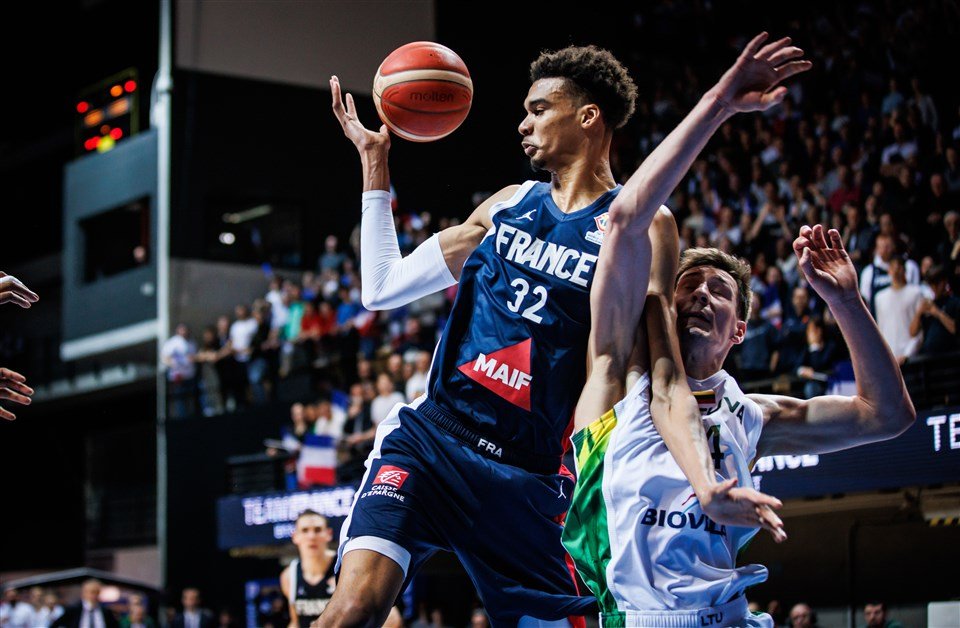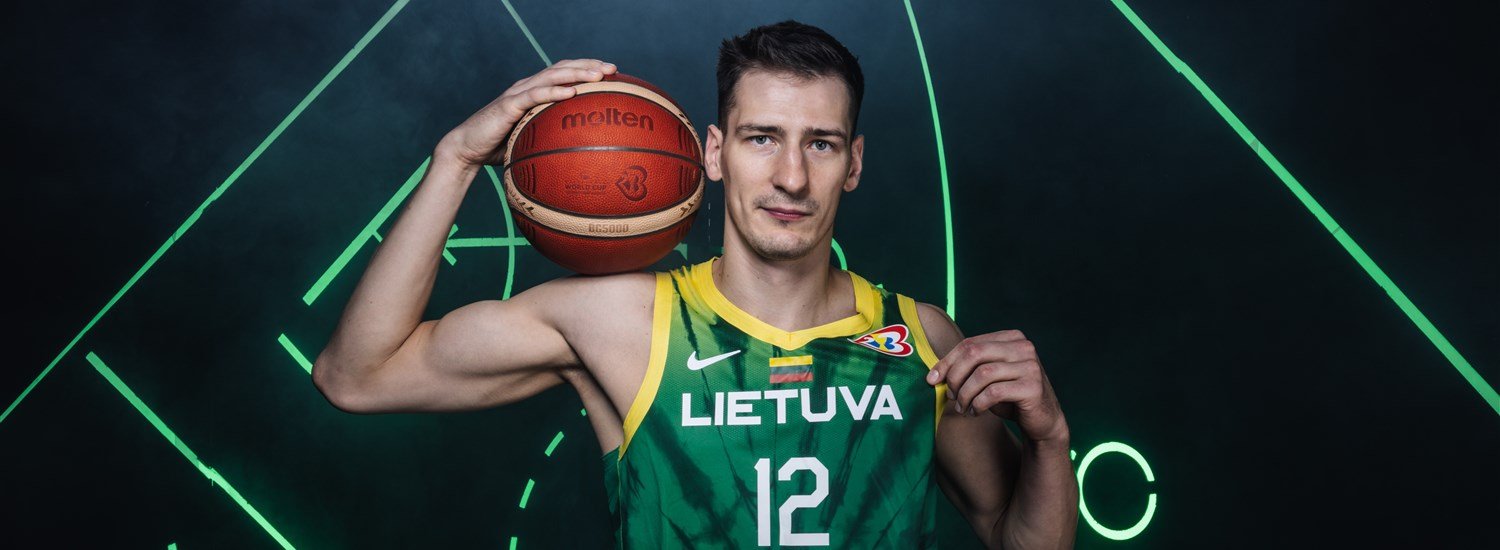Gabrielius “Gabas” Maldunas, is living the dream. As a young boy in Lithuania – where basketball eclipses all other sports in popularity and participation – Maldunas dreamed of playing for his country’s national team someday. It’s a dream that came true this past summer, when he donned the Lithuanian National Basketball Team uniform and took the court at the FIBA World Cup in the Philippines.
“In Lithuania, everybody watches the national team. When we started playing basketball, we were dreaming of playing for the national team one day,” he said. “That dream coming true was definitely crazy, and I enjoyed every second of it.”
Before Maldunas’ path led to the World Cup, however, it took him to New Hampshire, where he arrived at Holderness School as a 15-year-old sophomore in 2008. Some 4,000 miles and several international borders away from Maldunas’ hometown of Panevėžys, Lithuania, Holderness seemed a world apart. The teenager had never been to the United States before arriving at the start of the school year. But he had a two-pronged goal of furthering his basketball prowess and his academic achievement. Holderness School would prove the perfect place for realizing both.
“In Lithuania, if you want to do higher education, it’s very hard to play basketball and study. If you want to do sports, you have to go to a sports academy, but it’s not connected to your school,” he said. “Everything was a lot different. In Lithuania, we didn’t have private schools like Holderness. We just had public schools, and those were basically one building, and you’d go to classes then go home. It was kind of a shock when I got here, to see all of those buildings. It was overwhelming. It was tough at first, but I got through it.”
Among the many adjustments he faced when he started at Holderness – the language barrier, the different course load, a school that comprised not a single building but an entire campus – playing a different sport each season was among the most surprising. But ultimately, Maldunas said, shifting his athletic focus beyond basketball helped him to become a better all-around player.
“Other sports make you see athletics in a different perspective,” he said. “It actually made me miss basketball a little bit more, so then I was hungrier during basketball season. And using different muscle groups in different sports helps you as well.”
Maldunas played soccer all three years at Holderness, and opted for tennis as his spring sport the first two years. The spring of his senior year, he switched to lacrosse, an experience he said was “very interesting. I’d never played a contact sport like that before. But actually, it has some similarities to basketball – the footwork and some of the plays.”
Throughout his time at Holderness, Maldunas worked with basketball coach Tony Mure.
“He gave me a lot. I was working with him also in the summers and off seasons. He helped me not only with basketball, but with fitness and conditioning.,” Maldunas said of his coach. “He helped me to see basketball in a different perspective – and to see that there is other stuff in life.”
Regardless of the sport season, Maldunas was also focused on his academic studies. He was particularly interested in math, and also studied multiple languages at Holderness. As with basketball, he set targets for academic achievement.
“My first year in the United States, I made a goal to myself that I would go to the Ivy League” he said. “Education was very important to me. I realized that the Ivy League has the best universities. I wanted to challenge myself, so I made that goal. I knew that basketball was not the only way – you also need some academics and some other connections, and the Ivy League is one of the best at that.”
He found the opportunity to realize that goal at Dartmouth College, where he studied economics and excelled on the court. As he had been at Holderness, Maldunas was a captain of the Dartmouth team during his senior year. That season, the team posted the best record in recent Dartmouth basketball history, earning a spot in post-season play for the first time since 1959.
After graduating from Dartmouth, Maldunas pursued his professional basketball aspirations in Spain, where he played for two years. By the end of his second season, he’d been away from Lithuania for nine years and was eager to get back home – even if it meant he had to give up his professional basketball career.
“The Lithuanian basketball league is pretty strong, and I thought I didn’t really have a chance to play there,” he said.
Instead, he accepted a job offer from a bank, putting his economics degree to work. Maldunas’ banking career, however, was short-lived.
“I worked for 4 or 5 weeks, and then a club in Lithuania called and said they wanted to see me, and they had a contract ready for me in the first division in Lithuania,” he said. “I decided I needed to take a chance, because it’s not every day that you get offers from the best league in Lithuania to play basketball.”
After two seasons, Maldunas’ hometown team, Lietkabelis Panevėžys, offered him a contract. This fall he started his fifth season with the team, not long after wrapping up Lithuanian’s top-8 finish at the World Cup, where a highlight was beating Team USA in group play – only the third time Lithuania has done so, and the first since the 2004 Olympics.
Maldunas feels fortunate to still be pursuing his basketball dreams – from Holderness to Dartmouth to Spain and eventually back home in Lithuania. He was called up to the National Team in February of 2023, at the age of 29. (He is now 30 years old.)
“It’s kind of rare that a guy this age makes a debut for a national team. They usually take younger guys,” he said. “But the coaches saw that I could help the team.”
When the time comes to hang up the basketball shoes, will he return to banking? Maldunas said probably not. He’s working toward a graduate degree in sports education and thinks he may eventually pursue an off-court role in basketball.
“You never know what life is going to bring you,” he said. “I tried banking, and I think it wasn’t really for me. I’m pretty happy being in the basketball industry.”

„


